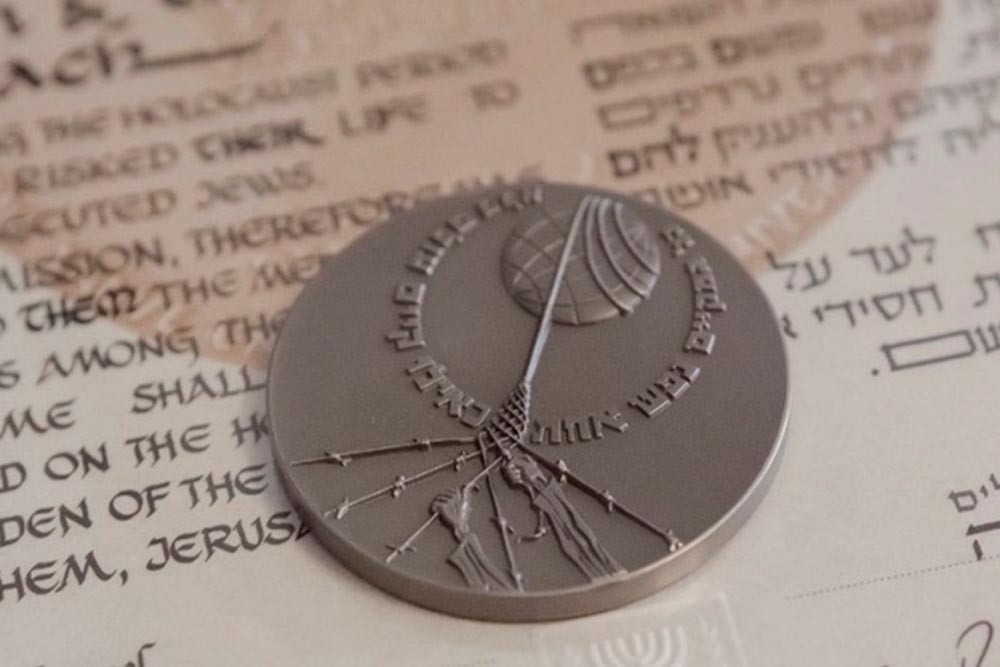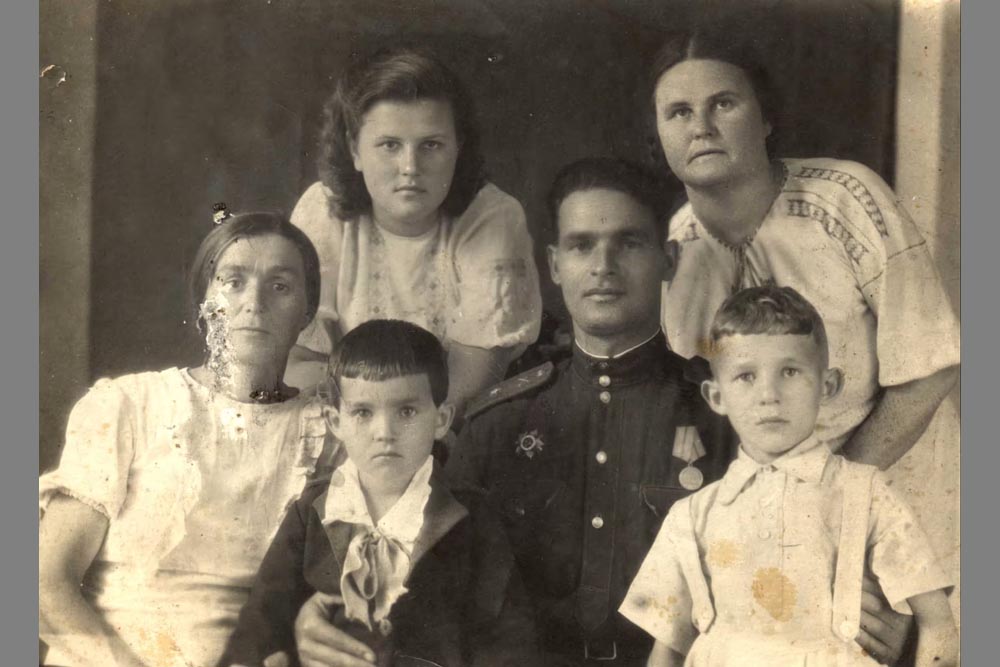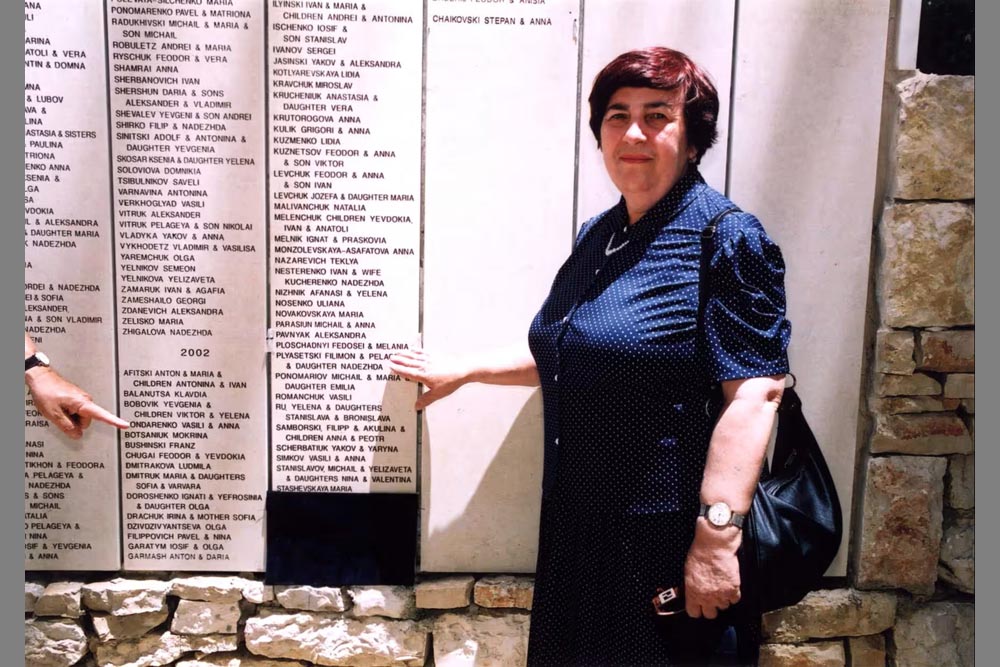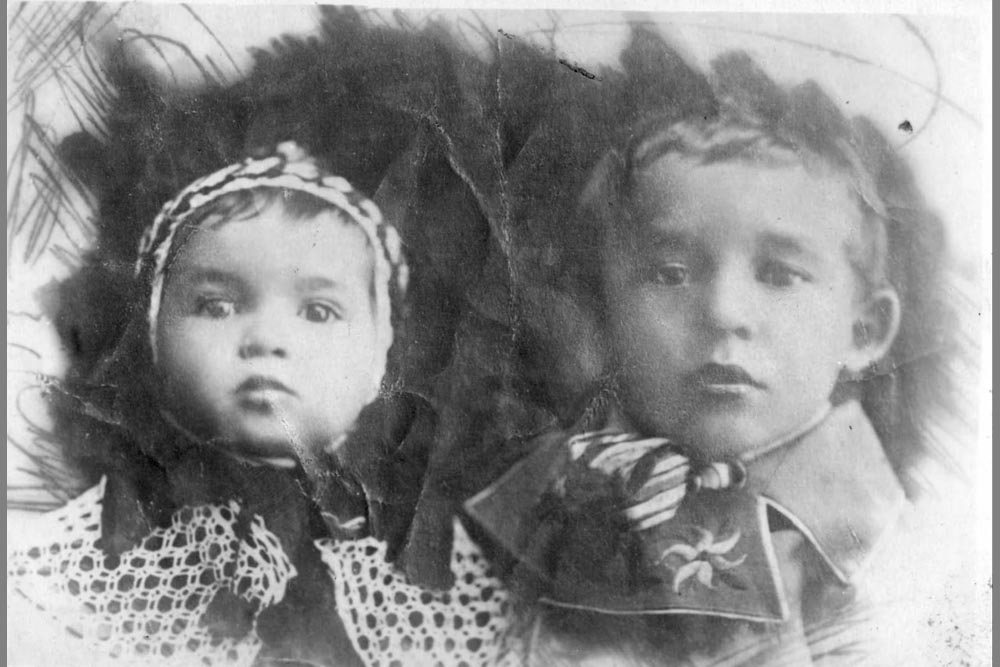Bank of Portraits / Ploshchadnyi Feodosii and Melaniia

Ploshchadnyi Feodosii and Melaniia
Feodosii and Melaniia Ploshchadnyi lived in Kherson. The couple was sociable, had many acquaintances in the city and its surroundings. On August 19, 1941, the German occupation began, and soon the Nazis began to establish a "new order", especially with regard to the Jews. Already in the first days, a Jewish council (Judenrat) was formed to rule in their community. At the request of the Nazis, the entire Jewish population of the city was registered. A few days later, there was an order to hand over all valuables and money to the Judenrat, as well as to wear a "Jewish star" on the front on the left side of the clothes and on the back. The death penalty was promised for non-compliance.
After registration, the Jews were informed that they would be able to live only within the boundaries of certain streets, near the intersection of Robocha and Frunze (district of Forshtadskyi streets; modern Forshtadska, Hirska, Mozolevskyi and Maiakovskyi streets), where historically there was a large Jewish population. On September 7, 1941, a ghetto was created there. Before that, all non-Jewish residents were evicted from the houses. Jews from other parts of the city were settled in the vacated apartments. The Nazi authorities assured that all of them would then be taken to Palestine. They were promised a calm and organized life in the ghetto, but the conditions there were terrible: dozens of slaves were placed in cramped rooms where there was not enough oxygen. There was a lack of water in the heat. The territory was surrounded by a fence with barbed wire, guards were posted. It was forbidden to go outside without special permission. At the same time, non-Jews were not allowed into the ghetto either.
In the 20th of September, the ghetto residents began to be transferred to the city prison, and a few days later, they were organized to be transported to the place of execution between the village of Zelenivka and the city of Kherson. The underground tried to help the Jews, saved them during transportation, and also staged a riot in the prison, which helped the Jewish prisoners to escape from guard.
It was at this time that Melaniia was approached by her acquaintance Leontii Stavenko, who was looking for permanent shelter for several Jewish children. They were released from the local prison during one of the underground operations. After consulting with her husband, Melaniia agreed to take the risk. The next day, Leontii brought three-year-old black and black-eyed Svitlanka Ravkina to the Ploshchadnyi family apartment. Her father, Samuel Ravkin, served in the Red Army, and her mother Raisa remained in prison, where she later died. Only the girl and her older brother Vitalii managed to be saved. The boy settled in the house of the Stavenko family.
In order not to arouse suspicion, Melaniia told the neighbors that Svitlana is the daughter of her distant relative, who before her death asked to take care of the little one. The girl got used to the new family quite quickly, began to call the Ploshchadnyi couple dad and mom. For many years, the couple dreamed of a child, so they fell in love with Svitlanka and did everything to make her happy. At the end of 1942, Feodosii joined the underground. In December 1943, during one of the actions, he was wounded and soon died.
After the expulsion of the Nazis from the city of Kherson on March 13, 1944, Melaniia contacted the Stavenko family and together they searched for the children's father, Samuel Ravkin. In the summer of 1944, he came to the city for a short vacation, where he met his son, daughter and their rescuers. This was their last meeting: on April 25, 1945, Samuel died. After that, Ploshchadnyi family officially adopted Svitlana, and Leontii Stavenko and his wife – Vitalii. Although the children did not live in the same family, they kept in touch with each other.
After the death of Melaniia in 1987, Svitlana Zhyrova (Ravkina) emigrated to Israel. There she met her older brother. Both wanted the feat of their saviors to be recognized. In 2002, Yad Vashem recognized Ploshchadnyi Feodosii and Melaniia as Righteous Among the Nations.
Svitlana Datsenko
Kyiv
National museum of the History of Ukraine in the Second World War
-
fingerprintArtefacts
-
theatersVideo
-
subjectLibrary



